At least 37 people were killed and dozens more injured across Bangladesh on July 20, despite a strict nationwide curfew aimed at quelling the escalating student-led anti-discrimination protests. The government subsequently declared a two-day general holiday on July 21 and 22 in an effort to restore calm.
The protests, initially sparked by demands for reforming the government’s quota system in public jobs, intensified after the July 19 midnight arrest of Nahid Islam, a key coordinator of the movement. The situation spiraled further after the death of student Abu Sayeed on July 16, which had already galvanized the movement into a broader uprising involving general citizens.
According to the Bangla daily Dainik Amader Shomoy, 25 of the 37 confirmed deaths occurred in the capital, Dhaka, including two police officers. Additional fatalities were reported in Mymensingh, Savar, Gazipur, and Narsingdi, although many believe the actual death toll is significantly higher. Citing media sources, The Daily Star editorial noted that most casualties were due to police and BGB gunfire, particularly on July 19.
The government imposed the curfew at midnight on July 19, deploying the military nationwide to assist civil authorities. Though curfew restrictions were briefly relaxed for two hours on July 20 to allow urgent movement, fierce clashes continued throughout the day.
In Dhaka, violence erupted in areas including Jatrabari, Mirpur, Mohammadpur, New Market, Azimpur, Science Lab, Uttara, and Badda. Protesters in Mirpur-10 clashed with law enforcement from morning till evening; Kazipara Metro Station was set ablaze. In Jatrabari and its surrounding areas, police fired live bullets, tear gas, and sound grenades as demonstrators blocked highways with trucks. Similar scenes unfolded in Mohammadpur’s Bosila area and Siddhirganj, where a police outpost was torched.
Sporadic violence was also reported in Savar, where 25 were injured, and in areas like Rayerbag, Shanir Akhra, and Kajla. The Dhaka-Aricha highway and a local livestock office in Savar were also attacked.
All businesses and shopping malls in the capital were closed due to the curfew, with law enforcement warning of imprisonment and fines for violators. RAB helicopters patrolled the skies as security was ramped up around key government installations including Bangabhaban, Ganabhaban, and various ministries.
The government claimed that the opposition BNP and Jamaat-e-Islami were exploiting the movement to incite unrest. “BNP and Jamaat are trying to hold the nation hostage using the quota issue,” said Awami League General Secretary and then-Road Transport Minister Obaidul Quader.
BNP, however, condemned the government`s actions. Secretary General Mirza Fakhrul Islam Alamgir said, “The fascist Awami regime cannot save itself through repression.” That night, BNP Standing Committee member Amir Khasru Mahmud Chowdhury was detained, while Nazrul Islam Khan and Ruhul Kabir Rizvi were remanded earlier in the day. Other opposition figures, including Nipun Roy and Gono Odhikar Parishad’s Nurul Haque Nur, were also arrested.
Amid the turmoil, quota reform coordinators distanced themselves from any violence. On the night of July 20, a group of coordinators including Hasnat Abdullah, Sarjis Alam, and Hasib Al Islam met with Law Minister Anisul Huq, Education Minister Mohibul Hasan Chowdhury, and State Minister for Information Mohammad Ali Arafat at the state guest house `Padma.` They placed eight demands, mostly aligned with a nine-point charter announced on July 19, except the demand for Prime Minister Sheikh Hasina’s resignation.
After the meeting, Anisul Huq stated the discussions were “fruitful” and the demands “logical and solvable.” However, other coordinators claimed the meeting was unauthorized and not representative of the movement, vowing to continue protests until all nine demands were met.
That same day, 44 prominent lawyers issued a joint statement condemning the government’s “excessive and disproportionate” use of force. International concern also mounted, with the UK and EU missions in Dhaka urging all parties to seek a peaceful resolution.
Meanwhile, key industry associations — BGMEA, BKMEA, and BTMA — announced the closure of all garment factories from July 21, as the movement showed no sign of abating.


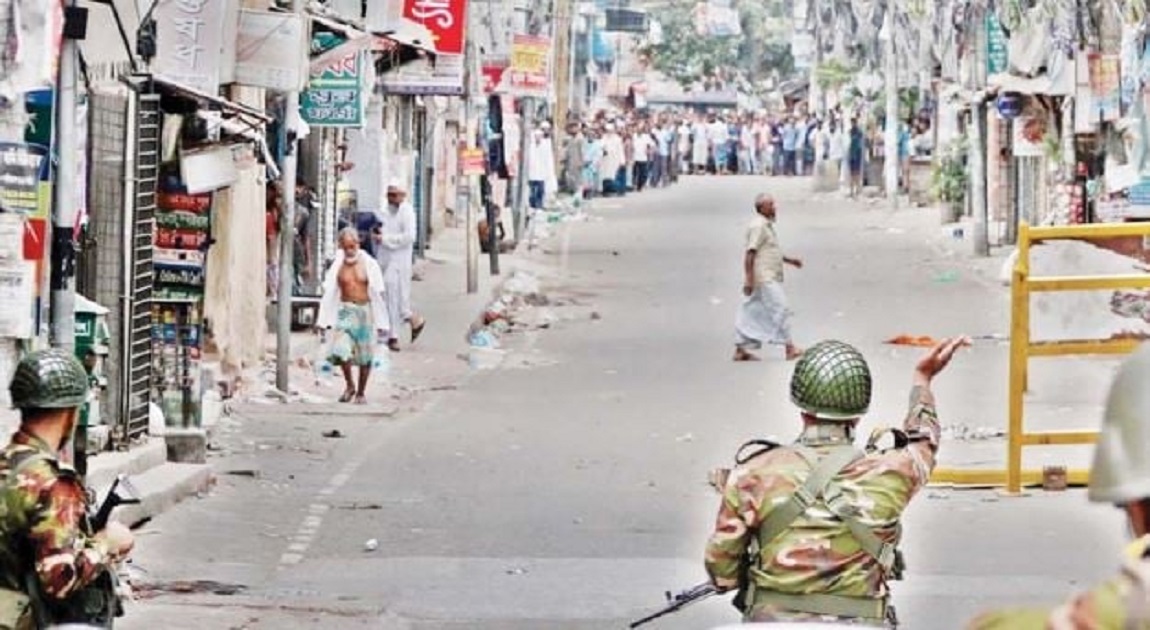

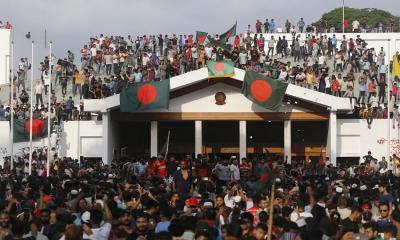
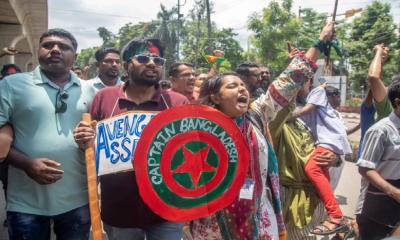
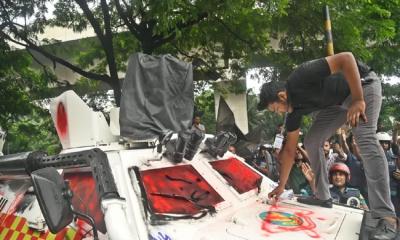
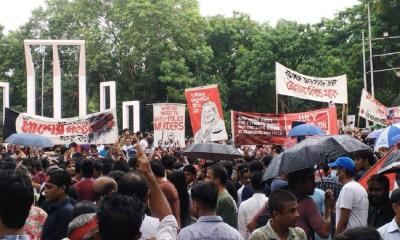
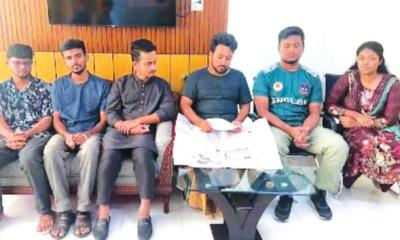
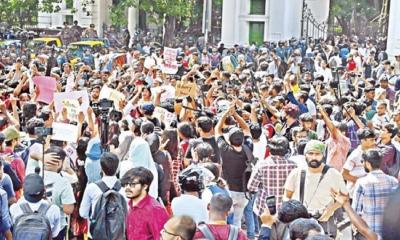
-20260228080513.webp)
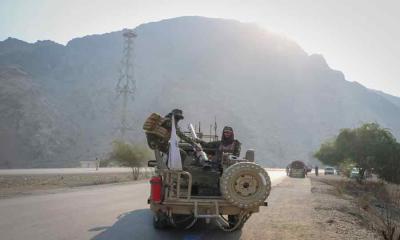
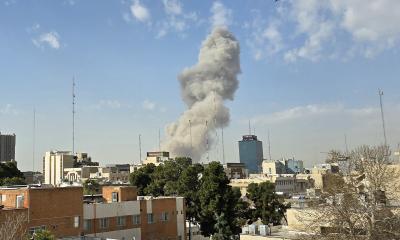
-20260228064648.jpg)
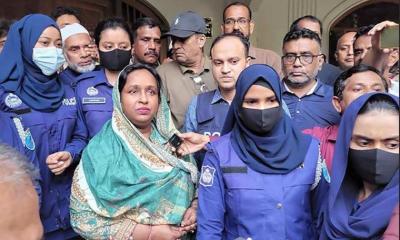
-20260228063029.jpg)
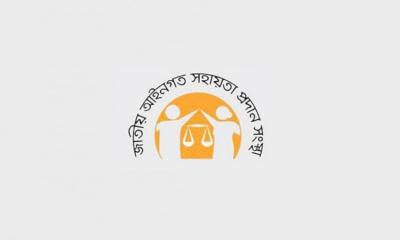
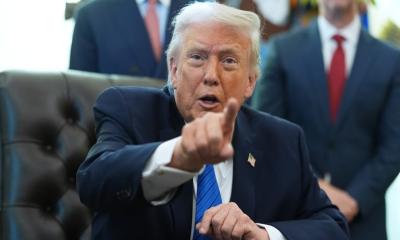
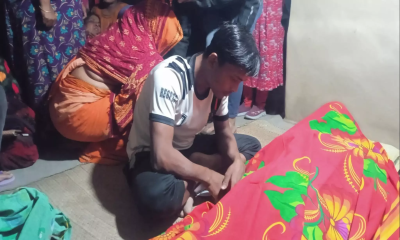

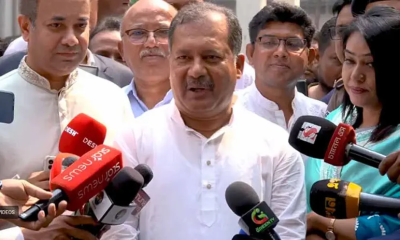
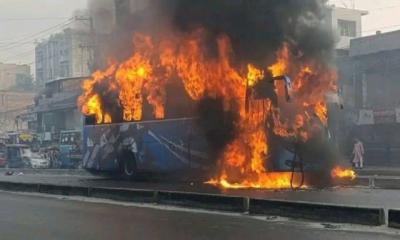
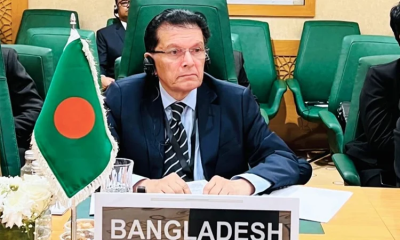

-20260227090008.webp)




-20260224075258.webp)







-20260221022827.webp)

